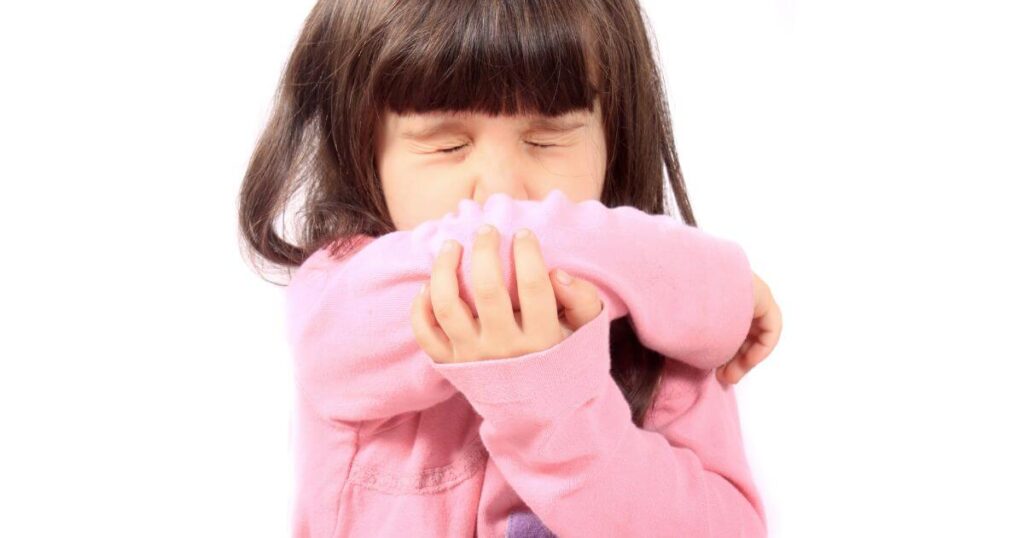As a parent, you never stop worrying about your child. You want the best for them and always want them to be happy and healthy.
Kids spread germs fast. Daycare facilities work hard to clean and disinfect every day for the safety of your children. Despite this, it is impossible to prevent all daycare illnesses from spreading.
In the United States, 58% of working parents send their children to formal daycare centers. Daycares help children learn and develop social skills while they are too young to attend normal school. Unfortunately, daycare is also a place where many children pick up daycare illnesses.
Having a sick child is stressful for any parent. Keep reading to learn more about common daycare illnesses and what to do when your child gets sick.
Causes of Daycare Illnesses
For many young children, daycare is the first time they are exposed to many people outside of their family.
While playing, children often put toys in their mouths, rub their eyes, crawl on the floor, and wipe their noses. Kids are always playing in close capacity to each other, often not aware of “personal space”. This means it isn’t uncommon for kids to cough or sneeze on each other.
No matter how often daycares clean and disinfect toys, kids are going to spread germs. In fact, many young children get sick at daycare when they first enroll. Doctors estimate that children can catch between 6 and 12 viruses in their first year of childcare.
Viruses cause most of the daycare sicknesses. The common cold, pink eye, stomach flu, and hand, foot, and mouth disease are all contagious viruses. Most doctors agree that as long as a child is growing and developing, common daycare illnesses are not a cause for concern.
Tips to Stay Healthy
Parents and daycare providers can help children build strong immune systems.
Doctors say that hand-washing is one of the best ways to prevent daycare illnesses. Daycare providers should help kids wash their hands many times during the day, beyond the regular bathroom routine. They can make it a fun game by having children sing songs while washing their hands.
It is important that children are also seeing good health habits at home that they can mimic. Parents should practice good hand-washing techniques and teach their children to cover their coughs and sneezes and to use tissues.
Additionally, proper nutrition plays a role in helping to build a child’s immune system. Parents should try to provide their kids with healthy food options! A great way to get kids to eat “yucky” healthy foods is to expose them to plenty of options while leading by example.
Families should also make sure their children are getting plenty of rest so they can build up a routine schedule that fosters healthy sleep and recovery.
Stopping the Spread
Despite efforts to keep everyone healthy, daycare illnesses happen. The best way to stop the spread of common daycare illnesses and Covid-19 is to keep sick children at home.
Now more than ever, daycare centers and parents must be vigilant at the first signs of sickness. This can prevent daycare sickness from spreading to the staff and other children.
If your child is sick, stay in contact with your child’s caregiver. Caregivers can let other parents know there was a sick child at daycare. This gives parents the heads up on symptoms they may need to be monitoring.
When to Stay Home
All children will eventually get sick, whether it is the sniffles or a virus. It can be hard for parents to know if a child needs to stay home from daycare.
You know your child best. If they are not feeling well enough to enjoy games and activities, they should stay home from daycare. Often, they will feel better with extra rest. Children with fevers, vomiting or diarrhea, bad pain, or a cough should not attend daycare.
If you have doubts about when to keep your child at home, ask yourself this simple question: would you be happy with your child playing with another child in the same condition? If the answer is no, keep your child home.
Know the Policy
Make sure you are familiar with your daycare’s sick policy.
Most daycares do not have the staff or space to care for sick children, this is why they have a daycare sick policy. These rules are in place for the well-being of all families and staff.
Sick policies will have rules about when your child is too sick to attend daycare and when your child can return to daycare. The rules will tell you how long your child needs to be symptom-free after an illness. Otherwise, certain illnesses may need a doctor’s note before children can return to the center.
Sick policies will also include details about what to do if a child gets sick at daycare. Sometimes children arrive at daycare feeling good but develop symptoms throughout the day. Parents will often be called to come to get their sick child to avoid further spread of potential illness.
Have a Plan
It is never easy to have a sick child, but a plan will take away some of the stress.
Some parents may be tempted to do a “drop and run” and leave a sick child at daycare because they do not have a backup plan. This puts the staff and other children at risk, which could lead to a larger closure of a daycare.
No child can escape daycare illnesses forever. Parents should have a plan for what to do when their child gets sick and needs to stay home. Do not wait until your child is sick.
Think about if a parent can stay home with the child. If not, think about other relatives or trusted friends who might be able to help watch your child.
Know who can pick up your child from daycare if they get sick during the day and need to go home. Make sure these contacts are updated for safety reasons.
Working Together to Stay Healthy
Daycares provide children with learning opportunities they may not otherwise receive at home. But, with more exposure to other children, it is impossible to stop the spread of germs when kids play together.
Although daycare facilities clean and disinfect regularly, all children will get sick. Daycare sickness can feel overwhelming for parents, but this should not stop parents from sending their children to daycare. Daycares and parents can work together to reduce the spread of common daycare illnesses.
Parents know that daycares provide a happy and nurturing environment for their children. Cornerstone Academy’s philosophy is to give kids a safe and friendly learning place. Contact Cornerstone Academy to learn about their child-based learning curriculum.



